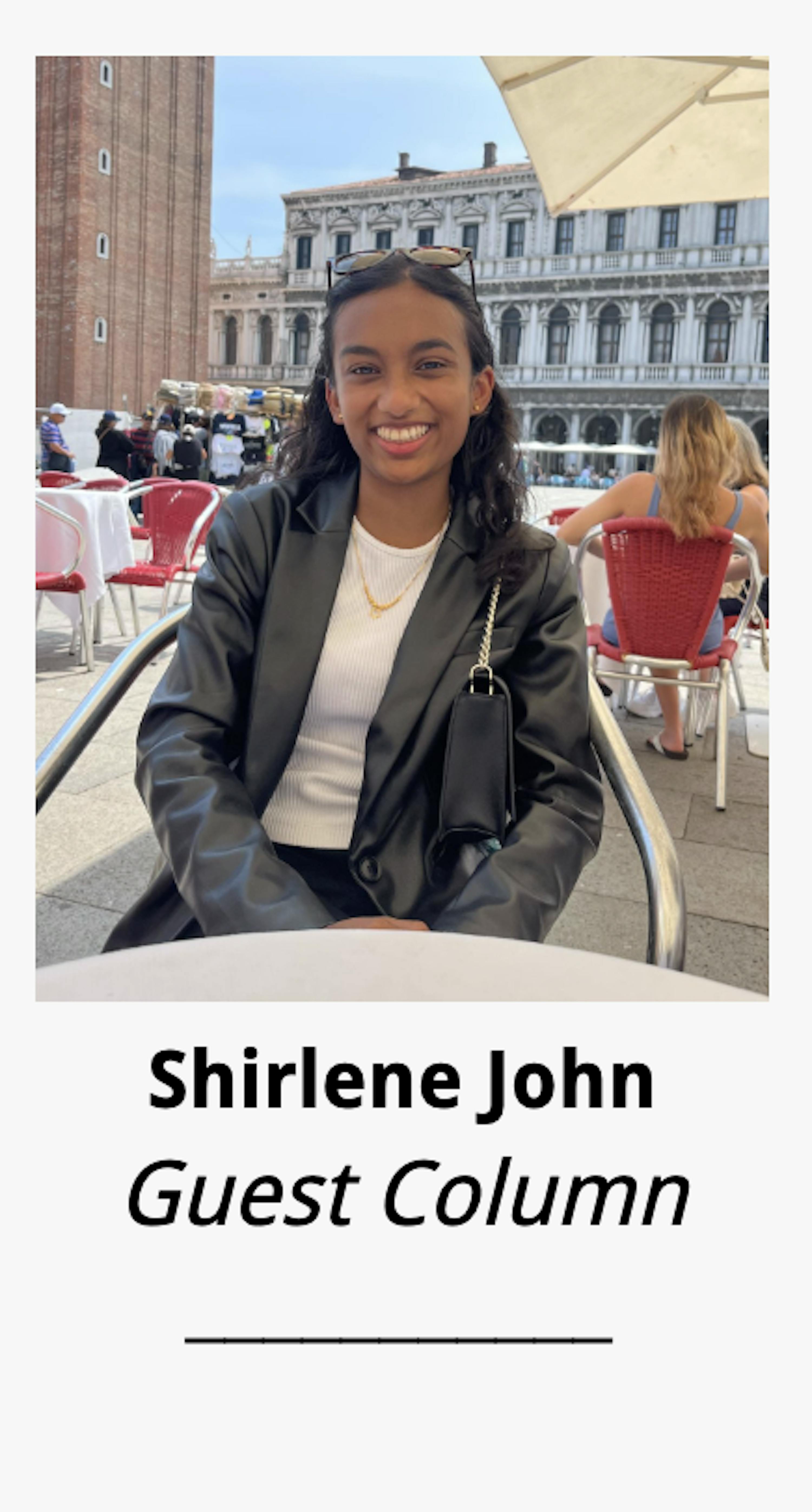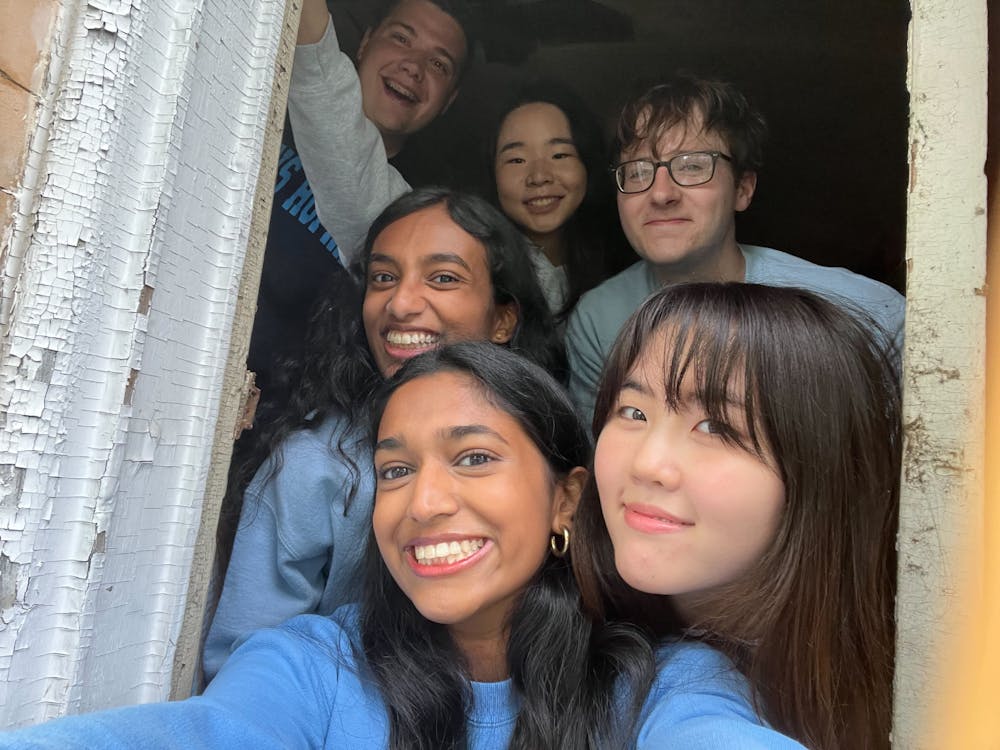
I know that this is going to be a messy goodbye and I don’t quite know how to put my thoughts into words. I’ve felt it in the group chats we’ve made with other graduating editors as we’ve transitioned from Slack messages into text conversations. It’s in the deep sense of pride I feel as I watch the new editors step up to their roles. It’s in the hint of anxiety as I try to stop myself from stepping back into the role I’ve just vacated — stopping myself from becoming that person who’s still clinging onto something that isn’t theirs anymore. It’s in the relief I felt when I allowed myself to turn off my Slack notifications for the first time in years.
For the last four years, I let The News-Letter consume every part of me. I was editing articles in classes. I was answering Slack conversations in the middle of birthday dinners with friends. My mother would tell me half-jokingly, half-seriously that I was letting The News-Letter be more of a time commitment than my schoolwork. When my co-Chief and I were trying to coordinate coverage of a protest ten minutes before our Physics II finals, I felt that maybe she was right.
What is the role of student journalism? It’s a question I’ve asked myself a million times in the midst of conducting interviews, writing editorials on this very topic and trying to explain what we do to University administrators. Whose voices get coverage? What stories do we tell and whose do we miss? The press exists to hold powerful institutions accountable, but when that institution is something as large and powerful as Hopkins, what does accountability even look like?
Often, I worry that I haven’t done enough. There are definitely stories we’ve missed simply because we didn’t have the bandwidth to cover everything. Other times, I’ve struggled to maintain the delicate balance of asking tough and difficult questions to the same people who are in charge of my own education. There are very few situations where our role as students doesn’t impact our role as journalists.
It is only a student journalist who has to answer to Sidechat comments or the gossip that inevitably spreads on a college campus. Everything always feels so close when you’re inevitably writing about the same people you take classes with. As a news writer, I was always told to put my perspective to the side and focus on the story itself. To be critical is to maintain objectivity and distance, but the stories we write as students and journalists are often the same ones that impact us. I edited articles about cuts to research funding as my own post-grad job search was up in the air because of those cuts. I wrote about changes in the same COVID-19 protocols that I would have to follow. Every time we write a news story, we always ask: How is this going to impact students at Hopkins? But in reality, we’re asking: How is this going to impact us?
There was a certain intensity I felt when I was one of the Editors-in-Chief. Every email, news alert and Slack notification felt as if the weight of the world was on me — as if every decision we made would somehow impact what happened at Hopkins. At other times, I worried that the work we did didn’t matter at all. What was the point when people didn’t even read the newspaper and jumped to conclusions at the first headline?
At this moment, when the ideals of the free press are increasingly questioned and journalists are under attack, it’s inevitable that these fears trickle down to student journalism. I felt it when we wrote the numbers of lawyers on our arms in Sharpie as we covered protests or when we had lawyers review our work, worried that what we published would get us sued. I felt it sharply when an administrator told me that they recognized me from my News-Letter work. I wasn’t sure if that was a good thing.
And still — despite the doubts, the exhaustion and the fear of getting something wrong — I am proud of the work I was able to do with The News-Letter. I’m proud of all the stories we were able to cover and the people we were able to give a voice to. I’m proud to have continued the legacy of an organization that has worked to hold powerful institutions like Hopkins accountable and will continue to do so. And I’m proud that we got to do it all by ourselves — both editorially and financially independent from the University.
The News-Letter has taught me how to think critically, ask difficult questions, write carefully and listen to those who are often not listened to. It taught me how to hold those in power accountable and gave me a space to grow into my own voice — and, importantly, it helped others find their own. Most of all, I found a group of people who cared just as deeply about the paper as I did. And for them, I am so grateful.
This goodbye is messy because it means that the time I’ve spent with something so important to me is coming to a close. I will miss the long print nights, Domino’s pizza and the Monday evening meetings, but I know that the paper is in good hands and will continue to do good work as it has for many years.
To The News-Letter — thank you. I’ll miss you more than words can say.
Shirlene John is a senior from San Jose, Calif. majoring in Neuroscience and Anthropology. She is a co-Editor-in-Chief for The News-Letter.





